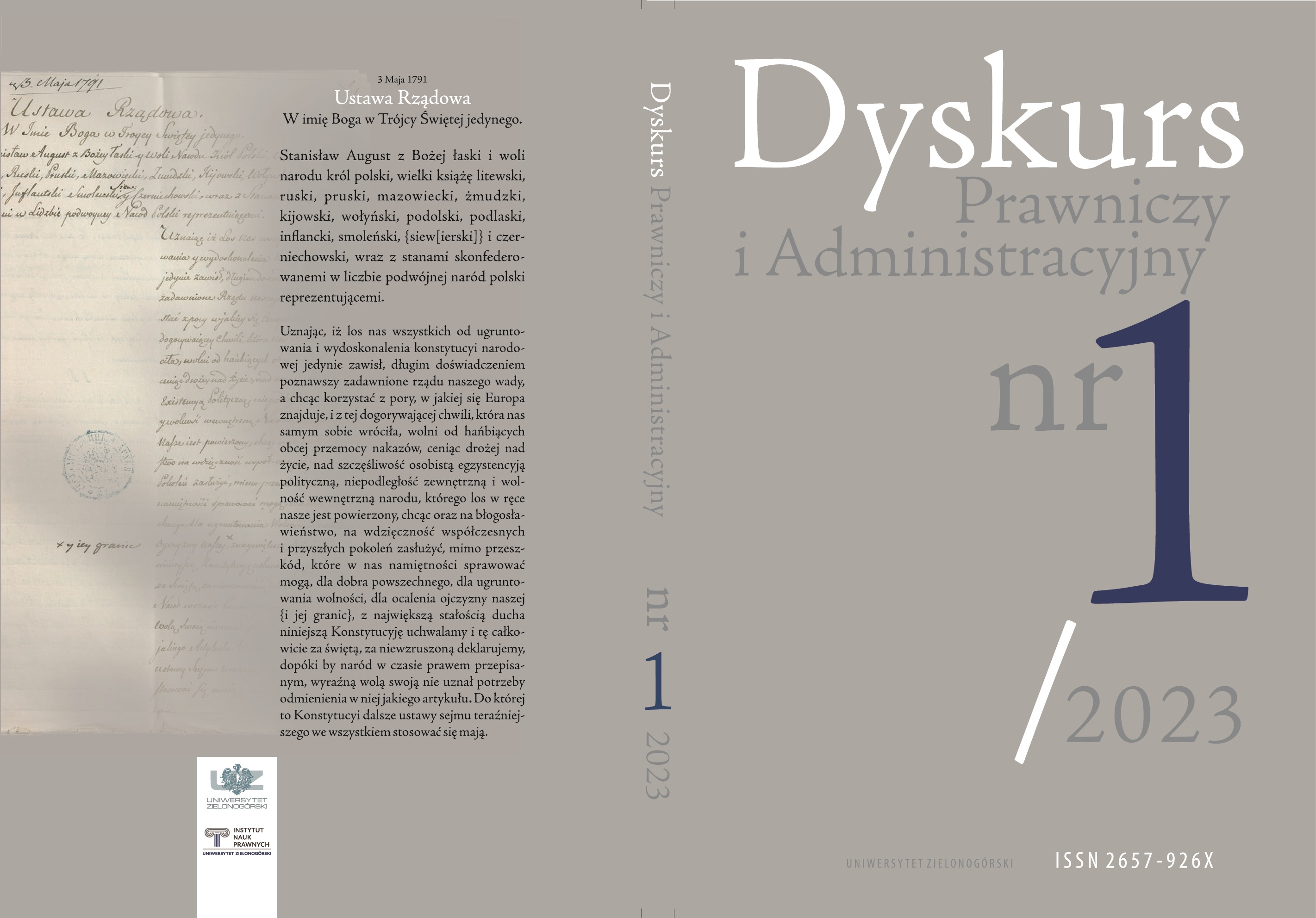The requirement to obtain a Vander Elst visa for workers posted to Germany who are nationals of third countries as an example of a violation of the freedom to provide services
Keywords:
freedom to provide services, , posting of workers, third-country nationals, Vander Elst visaAbstract
Posting employees who are third-country nationals to Germany as part of the provision of services requires them to obtain a Vander Elst visa. In the pre-posting procedure, German diplo matic representations verify the legality of employment of these persons in the posting country and the conditions of their employment in the host country. The need to submit a visa application in per son, which is possible only at designated diplomatic missions, after about a month of waiting for the deadline, in the uncertainty of not accepting the application as incomplete in the opinion of the host, and the time of processing the application significantly affect the possibility of starting the posting of non-citizens in accordance with German law third countries. The anticipation of the procedure for obtaining a Vander Elst visa, its complexity, the uncertainty of obtaining a visa and the impact of the need to obtain a Vander Elst visa on the dynamics of the provision of services make it possible to conclude that the requirement for undertakings established in a Member State to post only those workers who are nationals of third countries holding a visa Vander Elst violates Art. 56 TFEU.
References
Barnard C., The Substantive Law of the EU. The Four Freedoms, Oxford 2007.
Chmielewski J., Pojęcie nadrzędnego interesu publicznego w prawie administracyjnym, Warszawa 2015.
Cieśliński A., Konstrukcja prawna swobód rynku wewnętrznego Unii Europejskiej, Wrocław 2013.
Cieśliński A., Wspólnotowe prawo gospodarcze, t. I: Swobody rynku wewnętrznego, Warszawa 2009.
Mitrus L., Charakter prawny delegowania pracowników w ramach swobody świadczenia usług w Unii Europejskiej, „Europejski Przegląd Sądowy” 2018, nr 6.
Niedźwiedź M., Problematyka prawna ograniczenia dostępu do treści pornograficznych w Internecie ze względu na ochronę dzieci z perspektywy prawa unijnego, „Problemy Współczesnego Prawa Międzynarodowego, Europejskiego i Porównawczego” 2017, vol. XV.
Prawo Rynku Wewnętrznego. System Prawa Unii Europejskiej Tom 7, red. D. Kornobis-Romanowska, Warszawa 2020.
Tomaszewska M., Delegowanie pracowników – w poszukiwaniu równowagi między swobodą świadczenia usług a ochroną praw pracownika, „Europejski Przegląd Sądowy” 2018, nr 6.
Traktat o funkcjonowaniu Unii Europejskiej. Komentarz. Tom I (art. 1-89), red. D. Miąsik, N. Półtorak, A. Wróbel, Warszawa 2012. Wróbel I.,
Wymóg zaszczepienia się przeciw COVID-19 przez usługobiorcę jako ograniczenie swobody świadczenia usług w UE, „Przegląd Ustawodawstwa Gospodarczego” 2022.

Published
How to Cite
Issue
Section
Copyright (c) 2024 Piotr Kapusta

This work is licensed under a Creative Commons Attribution-NonCommercial-NoDerivatives 4.0 International License.




